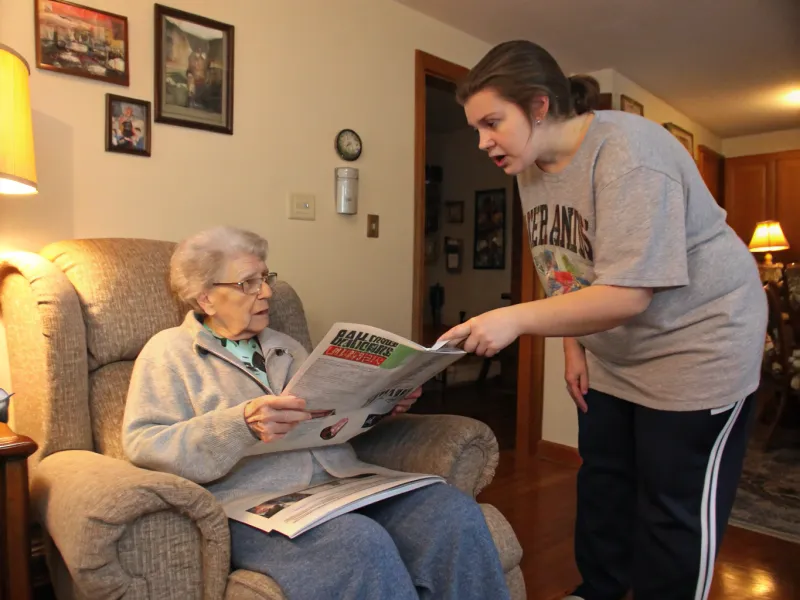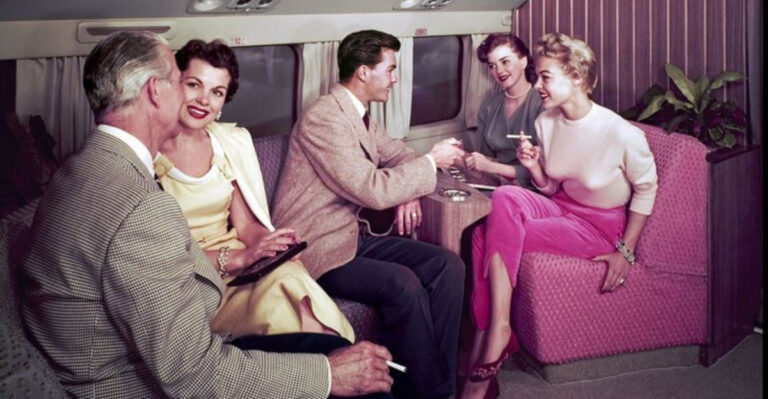37 Toxic Boomer Habits That Just Don’t Fly Anymore (And Honestly, It’s Time We Spoke Up)
They say times change—but some habits really need to. While every generation has its quirks, some old-school behaviors passed down from Boomer culture haven’t aged well.
From casual dismissals of mental health to the glorification of overwork and the “because I said so” parenting style, these once-normal habits are getting a second look—and not in a good way.
Younger generations are speaking up, setting boundaries, and challenging traditions that never really worked in the first place. And it’s not about blame—it’s about breaking cycles and building something better. So if you’ve ever been told to “toughen up,” “be grateful,” or “stop talking back,” you’re not alone.
These 37 outdated habits might have flown under the radar for decades, but today, they’re being called out for what they really are: toxic, harmful, and way overdue for retirement. Let’s talk about the things we’re no longer willing to shrug off.
1. Casual Racism in Jokes

Let’s kick this off with a bang! Casual racism masked as ‘just jokes’ is a boomer trend that’s so past its expiration date. Picture this: you’re at a family gathering, and Uncle Bob decides to crack a “harmless” joke targeting a minority group. The room goes silent, and all you can think is, ‘Did he really just say that?’ It’s 2025, and it’s high time we recognize that jokes perpetuating stereotypes aren’t funny—they’re harmful.
These offhand comments contribute to a culture of microaggressions and normalize outdated prejudices. It’s like trying to find humor in a flat tire—it just doesn’t work. We need to call it out, educate, and pivot towards inclusivity. Embracing diversity is way more fun and enriching than clinging to old, damaging habits.
Next time you’re tempted to laugh, think about the impact words can have. Humor is meant to uplift, not tear down. Let’s spread laughs that build bridges, not walls. Uncle Bob might not get it just yet, but with patience and gentle nudges, we’re hopeful he’ll see the light.
2. Workaholism as a Badge of Honor

Oh, the tales of walking uphill, both ways, in the snow to get to work! Boomers often wear their workaholism like a badge of honor, but let’s face it—a life chained to a desk isn’t the flex it used to be. Picture a middle-aged executive surrounded by piles of papers, burning the midnight oil. Sure, dedication is commendable, but when did burnout become synonymous with success?
This trend of glorifying overwork is as outdated as dial-up internet. It’s time to rethink work-life balance and prioritize mental health. Newsflash: you can hustle without sacrificing personal time. Let’s celebrate efficient work, where productivity doesn’t come at the cost of well-being.
Boomers might see it as slacking, but valuing downtime is essential for creativity and longevity. It’s about working smarter and finding joy in the journey—not just the destination.
3. Rigid Gender Roles

Can we talk about gender roles? Specifically, the rigid, 1950s-style blueprint that dictates who does what in a household. Imagine a black-and-white scene: Dad, feet up, newspaper in hand, and Mom, apron-clad, swirling around the kitchen. It’s an image that screams the past.
These outdated norms have been passed down like a family recipe—one that desperately needs a modern twist. We’re in an era where gender equality is more than a talking point; it’s a necessity. Everyone should have the freedom to break from traditional molds without judgment.
The world’s changed, and our views on roles should too. Whether it’s dads in the kitchen or moms leading in the boardroom, it’s about choice and equality. The more we challenge these stereotypes, the more we pave the way for a future where everyone’s contributions are valued, irrespective of gender.
4. Dismissal of Mental Health

Boomers and the stiff upper lip—it’s an epic saga. Back in the day, mental health wasn’t discussed; it was brushed under the rug. Fast forward to now, and the narrative is shifting, but not without resistance. Picture an older adult waving off a younger person’s mental health concerns, claiming ‘it’s all in your head.’
This dismissal is toxic and needs to be addressed. Mental health is health, period. Ignoring it only fuels the stigma and prevents people from seeking the help they need. We need to foster an environment where talking about mental health is as normal as discussing a sprained ankle.
Opening up about struggles shouldn’t be a sign of weakness but of strength. Let’s break the cycle of silence and create a supportive space where mental wellness is prioritized.
5. Lack of Digital Etiquette

Digital etiquette is the new frontier, folks, and some boomers are stuck at the starting line. Imagine someone loudly discussing personal matters on their phone in a quiet café. Cue the collective eyeroll. It’s not cute, and it’s definitely not considerate.
In this digital age, understanding how to use technology respectfully is crucial. Whether it’s oversharing on social media or not muting during a Zoom call, the lack of digital manners can be downright offensive. It’s about respecting boundaries and understanding that not everyone needs a front-row seat to your life.
We all love a good chat, but let’s be mindful of our surroundings and the people in them. Let’s lead by example and teach kindness in our digital interactions. After all, a little courtesy goes a long way.
6. Reluctance to Embrace Change

Change is the only constant, yet some boomers treat it like a bad cold—unwelcome and avoided. Picture this: an older couple staring blankly at a smartphone, adamant about sticking to their trusty flip phone. Change is scary, but resisting it only holds us back.
In a world that’s rapidly evolving, adaptability is key. Holding onto outdated technology or ideas only creates a divide. It’s like refusing to upgrade from a VHS player—so much innovation is missed out on.
Change isn’t the enemy; it’s an opportunity to learn and thrive. Whether it’s technology, social norms, or worldviews, there’s always room to grow.
7. Ageist Stereotypes

Age is just a number, but some stereotypes are relentless. Boomers often perpetuate the myth that younger generations are lazy or entitled. Picture a middle-aged person looking bewildered in a modern office, convinced their younger colleagues are glued to their phones all day.
This stereotype is not only inaccurate but harmful. It pigeonholes individuals and creates unnecessary tension between age groups. Let’s break these barriers and appreciate the strengths each generation brings to the table.
The workplace thrives on diversity of thought and experience. Age should never be a barrier but a bridge to understanding and growth.
8. Patronizing Attitudes to Youth

Oh honey, let’s talk about the patronizing pat on the back from boomers who think they know best. Imagine an older adult, mid-conversation, patting a young person on the shoulder while saying, ‘You’ll understand when you’re older.’ Cue the inner eye roll.
This condescending attitude is not just frustrating, it’s dismissive. It undermines the opinions and experiences of younger generations, who are just as insightful and capable. We’re all on different journeys, and respect should be mutual, regardless of the number of candles on our birthday cake.
Invite open dialogue and appreciate diverse perspectives. Wisdom isn’t exclusive to age; it’s found in experience and understanding.
9. Body Shaming

Body shaming—let’s call it what it is: toxic. Boomers often think it’s okay to comment on someone’s appearance under the guise of concern. Picture this: a family dinner where an older relative makes a remark about someone’s weight. Cue the discomfort.
Comments like these chip away at self-esteem and perpetuate unhealthy beauty standards. It’s time to focus on health, not size, and celebrate diversity in body shapes and sizes. Everyone is unique, and that’s what makes us beautiful.
Let’s silence body shaming and champion body positivity. Remember, kindness is always in style, and words have the power to heal or hurt. Choose them wisely and spread love, not judgment.
10. Nostalgia as a Weapon

Ah, nostalgia—sweet but sometimes a little too sticky. Boomers love to wield it like a weapon, often lamenting about ‘the good old days‘ and how everything was better back then. Imagine someone holding a sepia-toned photo, lost in memories.
But here’s the thing: romanticizing the past can blind us to the progress of the present. Every era has its flaws, and the past wasn’t as perfect as it’s often painted. It’s essential to appreciate the now and the improvements we’ve made along the way.
Celebrate progress and embrace the new while cherishing fond memories. The world is ever-evolving, and there’s beauty in moving forward.
11. Over-Parenting and Helicoptering

Let’s talk about the overbearing presence of helicopter parenting—a boomer specialty. Picture this: a middle-aged parent hovering like a hawk over their grown child’s shoulder as they work on a laptop. It’s not nurturing; it’s suffocating.
While the intention is love, the execution often stifles independence and personal growth. Children need space to explore, make mistakes, and learn from them. Over-parenting sends the message that they can’t be trusted to navigate life on their own.
Trust that the seeds you planted will grow strong and resilient. Foster independence while being a safety net, not a straitjacket.
12. Disregard for Environmental Issues

The planet is screaming for help, yet some boomers turn a deaf ear. Picture an older person bypassing recycling bins, clutching a single-use plastic bottle. It’s like ignoring a fire alarm—it doesn’t make the problem go away.
Environmental issues are real and pressing. We need everyone, boomers included, to step up and make conscious choices. From reducing plastic use to supporting sustainable practices, every action counts in preserving the planet for future generations.
Inspire eco-friendly habits and champion change. Educate and encourage small steps that lead to significant impacts. The earth is our only home, and it’s time we all act like it.
13. Belittling New Music Genres

Music is a universal language, yet some boomers insist on belittling emerging genres. Picture a middle-aged person frowning at a young adult’s playlist, dismissing it as noise. But music evolves, just like everything else.
New genres reflect cultural shifts and innovative expressions. They deserve appreciation, not disdain. Belittling them only stifles creativity and dismisses the voices of a new generation. Music is meant to be diverse and dynamic.
Open your ears and minds to new sounds and rhythms. Celebrate the art of music and the stories it tells.
14. Fear of Technology

Technology is a marvel, yet some boomers treat it like a riddle. Picture someone staring at a laptop with the same expression they’d have for a Rubik’s cube. It’s not the enemy; it’s a tool for innovation and connection.
This fear stems from unfamiliarity, but resisting tech advancements only limits opportunities. Whether it’s learning to use a smartphone or navigating social media, embracing technology opens doors to new experiences and knowledge.
Encourage curiosity and patience when learning new tech. With a little guidance and practice, the digital world is a playground waiting to be explored. Who’s ready to jump in?
15. The Stigma Against Non-Traditional Careers

Traditional career paths like medicine, law, and finance are highly valued by many Boomers, often overlooking emerging fields. This mindset can stifle the ambitions of young individuals who wish to pursue careers in the arts, technology, or freelance opportunities.
Acknowledging and valuing diverse career paths is essential in today’s evolving job market. Encouraging exploration and creativity can lead to personal fulfillment and innovation.
Supporting non-traditional careers involves understanding their potential impact and recognizing the diverse skills required to succeed in them.
16. The ‘Pull Yourself Up by Your Bootstraps’ Mentality

Let’s address the infamous boomer mantra: ‘Pull yourself up by your bootstraps.’ Picture a middle-aged person proudly pointing to their own accomplishments while lecturing a young adult on hard work. It’s not that simple.
This mentality overlooks systemic challenges and the changing landscape of opportunity. It’s not always about effort; sometimes, it’s about access and understanding. We need to acknowledge the barriers others face and extend a helping hand.
Success isn’t a one-size-fits-all journey, and everyone’s path is unique. Focus on collaboration and mentorship rather than competition and judgment.
17. The Criticism of Social Media Use

Many Boomers often criticize social media, viewing it as a time-wasting distraction without recognizing its communication and networking benefits. While excessive use can be concerning, social media also fosters community and innovation.
Understanding the positive aspects of digital communication can bridge generational gaps and promote intergenerational learning. Encouraging responsible use rather than outright dismissal can enhance relationships and professional opportunities.
It’s important to see social media as a tool for connection and growth, rather than only focusing on its negatives.
18. Cultural Appropriation

Cultural appropriation—let’s call it out. Picture a middle-aged person donning traditional attire from another culture at a themed party. It’s not appreciation; it’s appropriation.
This behavior disrespects the significance and history of cultural symbols and traditions. It’s essential to understand and celebrate cultures without claiming them as our own. Appreciate, but don’t appropriate.
Let’s promote cultural exchange that respects boundaries and honors heritage. Encourage learning and appreciation through dialogue and education.
19. Overuse of the Phrase ‘That’s Not How We Did It’

If I had a dollar for every time a boomer said, ‘That’s not how we did it,’ I’d be rich. Imagine an older person waving off a fresh idea in a meeting, clinging to past practices like a life raft. It’s limiting.
This mindset stifles innovation and progress. Clinging to the past prevents growth and adaptation in a rapidly changing world. It’s about evolution, not repetition.
The world is different today, and so should our methods be. Let’s champion creativity and forward-thinking, and bid farewell to outdated attitudes.
20. Mansplaining

Mansplaining—where would we be without it? Happier, perhaps. Picture a middle-aged man explaining something to a woman who clearly knows her stuff, but he’s oblivious. It’s condescending and unnecessary.
This trend undermines women’s intelligence and contributions, perpetuating gender inequality. It’s about recognizing expertise and valuing diverse perspectives.
It’s time to retire mansplaining and elevate conversations with equality and understanding.
21. Romanticizing the Past

Let’s talk about the tendency to romanticize the past. Imagine someone gazing wistfully at old photographs, missing the beauty of today. It’s sweet but blindsiding.
The past wasn’t perfect, and holding onto it can hinder appreciation of the present. Every era has its challenges and joys.
Choose to live in the moment and appreciate how far we’ve come. The future is bright, and it’s ours to shape.
22. Over-Politeness and Avoidance of Conflict

Over-politeness—sometimes it’s just avoidance in disguise. Picture a middle-aged person smiling and tiptoeing around a confrontation. It’s about as effective as a broken umbrella in a storm.
Avoiding conflict doesn’t make issues disappear; it prolongs them. Honest, respectful dialogue is crucial for resolving misunderstandings and fostering growth.
Be brave enough to address issues head-on, with kindness and empathy. Ready to speak up?
23. Over-Indulgence in Consumerism

Consumerism—the boomer era’s love affair with ‘stuff.’ Picture someone in a mall, surrounded by shopping bags, indulging in retail therapy. It’s not fulfilling; it’s fleeting.
Overindulgence in material things doesn’t equate to happiness. It’s time to value experiences and relationships over possessions.
Mindful consumption and sustainable living will create memories, not clutter.
24. The ‘Back in My Day’ Syndrome

The ‘back in my day’ syndrome—a boomer staple. Picture an older adult regaling a young person with tales of the past, laced with a hint of superiority. It’s nostalgic, but not always relevant.
Times change, and so do challenges and opportunities. Comparing eras unfairly burdens the present with the past’s standards.
Appreciate the past while acknowledging the present’s unique context. Future-forward is the way to go.
25. Resistant Attitude Towards Therapy

Therapy is a lifeline, yet some boomers dismiss it as unnecessary. Picture an older person waving off therapy while a younger person attempts to explain its benefits. It’s a disconnect that needs addressing.
Mental health support is crucial and transformative. Therapy provides tools for navigating life’s complexities and healing.
It’s important to break the stigma and embrace self-care.
26. The ‘Respect Your Elders’ Mantra Without Merit

Respect is earned, not demanded. Imagine an older person insisting on respect from a younger person without reciprocating it. It’s a one-sided expectation that’s both unfair and outdated.
Mutual respect creates harmonious relationships. It’s about valuing each other’s perspectives and experiences.
Encourage respect that’s mutual and deserved. Let’s build relationships on understanding and kindness, regardless of age.
27. Traditionalism in Weddings

Weddings are a celebration of love, but traditionalism can overshadow the joy. Picture a couple being pressured into a conventional ceremony by older relatives who insist it’s the only ‘proper’ way.
Love is personal, and so should be its celebrations. Everyone deserves a wedding that reflects their unique story, not outdated norms.
It’s time to redefine traditions and celebrate individuality. Who’s ready to say ‘I do’ their way?
28. The ‘You Can’t Teach an Old Dog New Tricks’ Attitude

The ‘you can’t teach an old dog new tricks’ attitude—limiting, isn’t it? Picture someone refusing to try a new activity, content in their old routine. It’s comfortable but stagnant.
Learning is lifelong, and curiosity keeps us vibrant. Embracing new experiences enriches our lives.
Try new things with an open heart and mind.
29. Stigmatizing Tattoos

Tattoos—a form of self-expression often unfairly judged by some boomers. Picture someone eyeing a young adult’s ink at a family gathering with disapproval. It’s art, not rebellion.
Tattoos tell stories and express individuality. Stigmatizing them stifles creative expression and acceptance.
Celebrate diversity in self-expression. Art is subjective, but respect isn’t.
30. Criticizing Modern Parenting Styles

Parenting—everyone’s an expert, right? Especially boomers critiquing modern methods. Picture an older person questioning a young parent’s innovative child-rearing approach. It’s judgmental and unnecessary.
Parenting evolves with societal changes and understanding. Criticizing new methods ignores their potential benefits.
Foster connection and wisdom across generations—because parenting thrives on shared knowledge and love.
31. Resistance to Veganism

Veganism—a lifestyle often met with skepticism by boomers. Picture someone eyeing a plant-based meal with doubt. It’s a choice rooted in health and ethics, not just a trend.
Plant-based living supports environmental and personal well-being. It’s about making informed choices for a better future.
Promote open-mindedness toward different diets—it’s all about respect and understanding.
32. The ‘My Way or the Highway’ Mentality

The ‘my way or the highway’ mentality—rigid and divisive. Imagine an older person insisting their way is the only way in a group setting. It’s limiting and counterproductive.
Flexibility and collaboration lead to better outcomes. It’s about valuing diverse ideas and approaches.
Encourage open-mindedness and teamwork. It’s about unity and innovation. Let’s pave new roads together. Who’s ready to collaborate?
33. Overemphasis on Homeownership

Homeownership—a revered milestone for boomers, but not always feasible today. Picture someone lecturing a young couple on the importance of buying a house. It’s not the only path to success.
Today’s economic landscape is different, and renting is often more accessible. Homeownership isn’t the only marker of stability.
Try diverse paths and redefine success on your own terms. It’s not about following a set formula—it’s about what truly works for you.
34. Criticism of Remote Work

Remote work—a modern marvel met with skepticism by some boomers. Picture someone doubting a young professional’s ability to work effectively from home. It’s innovative, not lazy.
Remote work isn’t just about flexibility—it’s a game-changer for productivity. Adapting to new ways of working opens doors to innovation and balance.
Stay open to evolving work environments—it’s about growth, efficiency, and the future.
35. Overemphasis on Formal Dress Codes

Boomers often hold tight to the idea that professional success is tightly linked to appearance, particularly through formal dress codes. This belief can create unnecessary barriers and stress for younger workers who value comfort and self-expression.
While looking presentable is important, the modern workforce is leaning towards inclusivity and efficiency over strict dress codes. Encouraging people to focus on their work rather than their attire can foster creativity and innovation.
Organizations can benefit from reevaluating their dress policies, understanding that a relaxed dress code doesn’t equate to a lack of professionalism.
36. Shaming Emotional Expression

“Stop crying” or “Don’t be so sensitive”—sound familiar? Many Boomers were raised to believe that emotions should be tucked away and never put on display. But suppressing feelings doesn’t build strength—it creates emotional roadblocks.
Today’s generations are embracing vulnerability, therapy, and emotional intelligence. Expressing emotions is now seen as brave, not weak. It’s a path to healing, not a detour from it.
Let’s break free from emotional stoicism and normalize talking about feelings. Because real strength? It comes from honesty, empathy, and connection.
37. Dismissing Identity Conversations

Boomers often shy away from conversations about gender identity, pronouns, and sexual orientation—sometimes out of confusion, other times discomfort. But avoiding the topic sends a message of dismissal.
The world is beautifully diverse, and acknowledging that is non-negotiable. Learning correct pronouns, respecting chosen identities, and asking respectful questions is a baseline of kindness—not a political statement.
We don’t have to fully understand to offer respect. Progress starts with listening, and empathy paves the way. Let’s lean in, not tune out.







